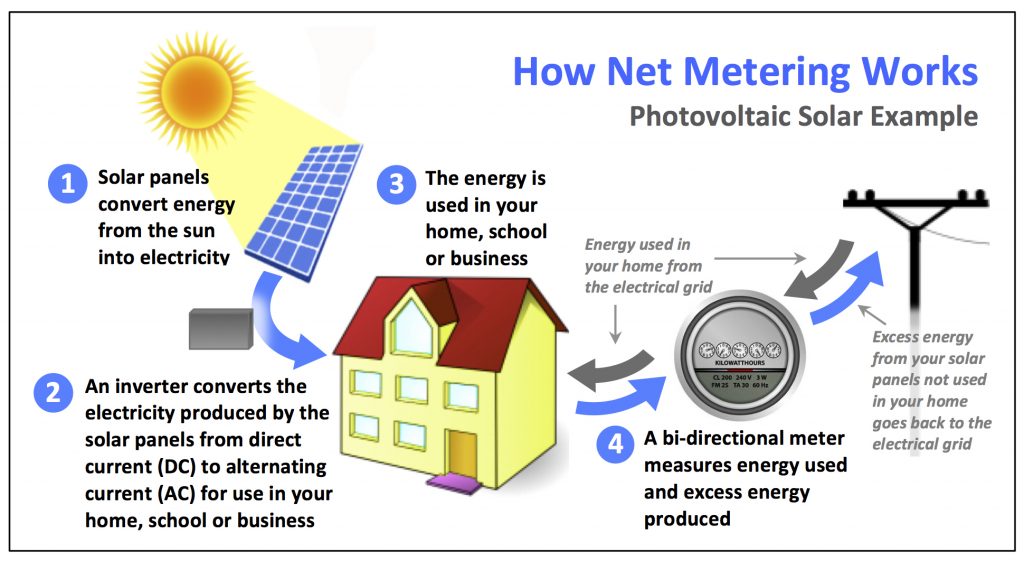When you install a solar system in your house, the utility company installs a new electric meter in you residence. This new meter is a net meter — meaning that it transmits the amount of electricity that is created by the solar panels which is used to offset the electricity you are using at the time in your house. If you create more electricity than you use, the extra electricity is returned to the grid and passed along to neighbors who demand electricity. In this way, on your monthly bill, you are billed to the “Net” electricity that you use over and above what you create with your solar panel system.
When you first install a solar system, depending on the time of year and if you have added enough panels to cover your overall requirements for electricity, you may be billed a small amount from the utility company. As the year progresses and you have a lot of sunny days, you will then bank electricity for future use. Most utility companies will then pay you for an overage of electricity created by your panels on an annual basis — paying at the wholesale electric rate level.

